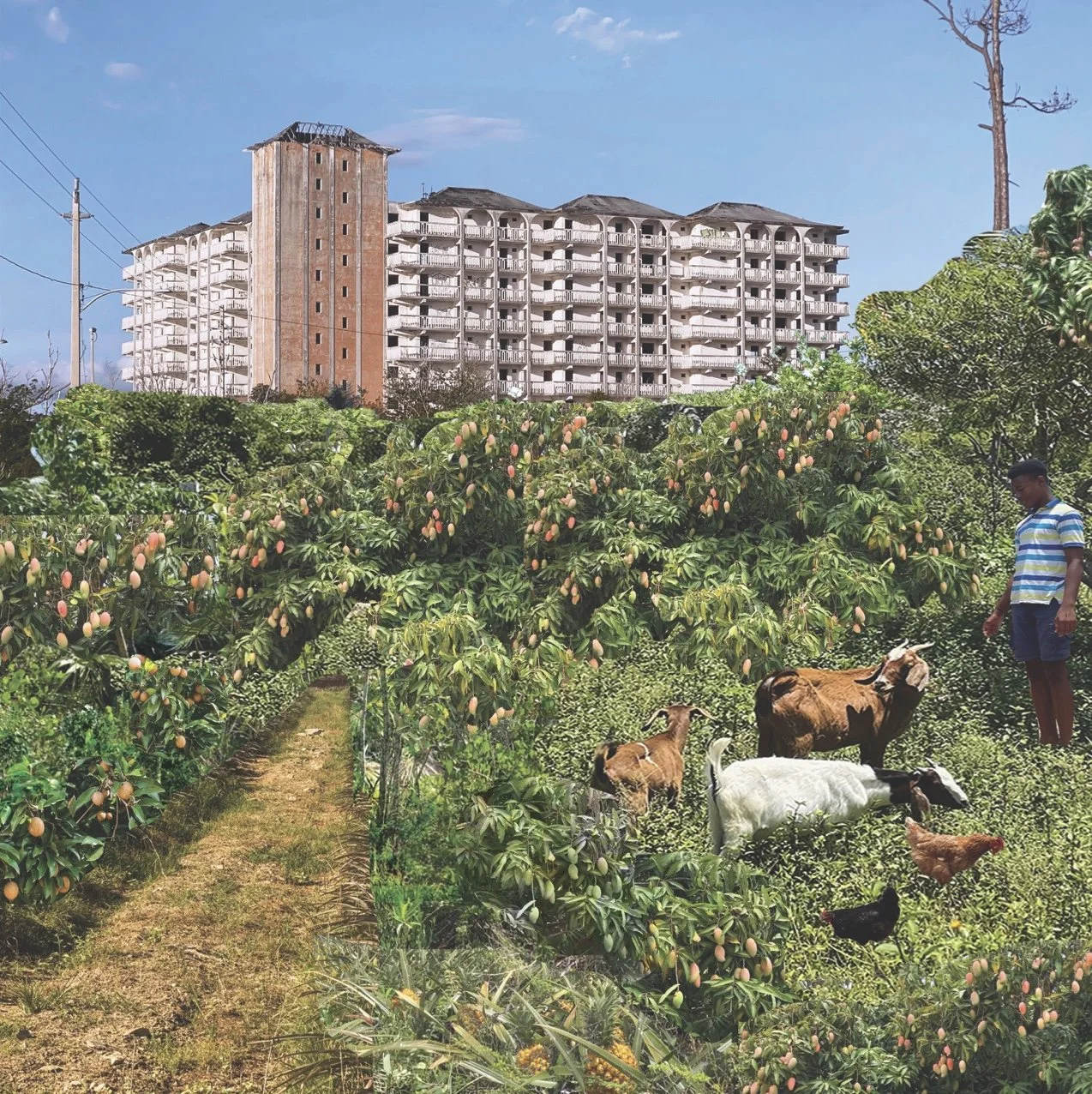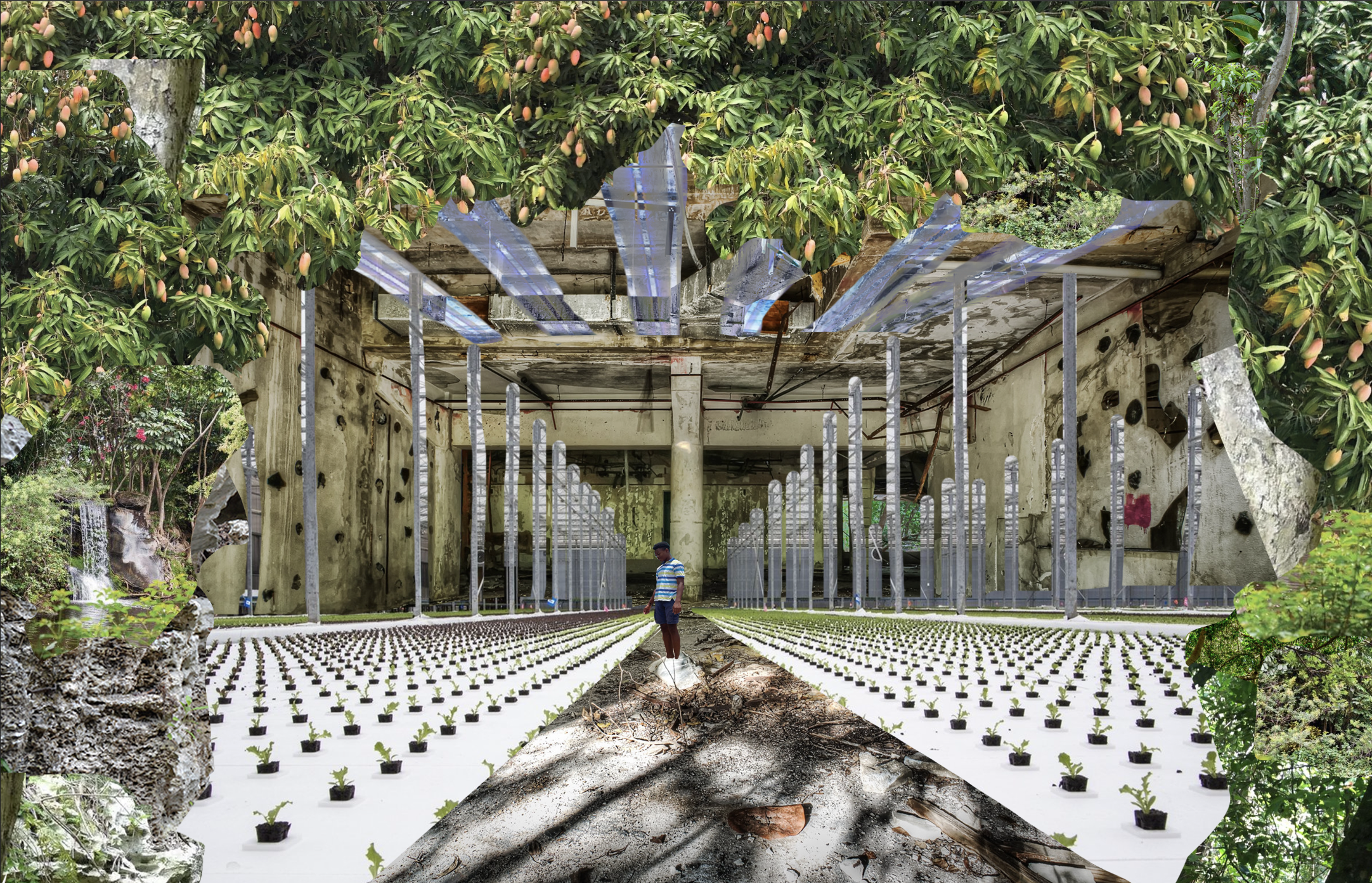In these collages, I speculated on what The Bahamas would look like if we changed our policies and started relying on the farmers on the islands, utilizing spaces and higher technologies that can help bring in more produce for the community. I’m not trying to stop tourism, but use the spaces that are no longer in use to be something beneficial to the people in the Bahamas.
Contemporary Issues in Design
(Ecology, Justice, and Labor)
Duty Reduction Policy, 2025
Digital collage, 42” x 42”
Duty Reduction Policy P.2, 2025
27” x 42”
The Bahamas has a large wage gap between the wealthy and the poor. Lesvie Archer took a survey from the 2020 Bahamas Living Wages Survey and concluded that as of March 2024, a middle-class family of four needs a monthly income of $10,200 to be able to live in New Providence, which is in Nassau, the capital town, and the most populated island. In Dr. Erecia Hepburn’s article Investigating the Understanding, Interest, and Options for Agri-Tourism to Promote Food Security, she stated, “The country imports more than $250 million in foodstuffs per year…about 80-85% of its food consumption.” Because most of our food is imported not only for the general public but also to feed about 5 million tourists who visit every year, this causes food insecurity. Much of the land in the Bahamas is bought out by big corporations, and they like to build hotels on top of it, but sometimes it doesn’t work out. There are already many other big hotels around. In this collage, the background has an abandoned hotel called the Arawak Hotel. It was abandoned in the 80s. The hotel sits on Grand Bahama, which is secluded from the general public. The name Arawak comes from the indigenous tribe that inhabited the Bahamas before it was colonized. Before the Bahamas became an independent country in 1973, our market was based on agriculture, but after World War II, the Bahamas started to market themselves as a vacation spot, which helped develop the country. Policies like the Duty Reduction Policy promote imports from other countries, but they also affect the general public, who can’t afford imported goods. Many of the farmers in the Bahamas living on family islands (like Grand Bahama, Exuma…) migrate to Nassau to try to earn a living for their families back in the family islands, but because many farmers have to migrate, there are not many opportunities to have locally grown produce, which causes food scarcity.

